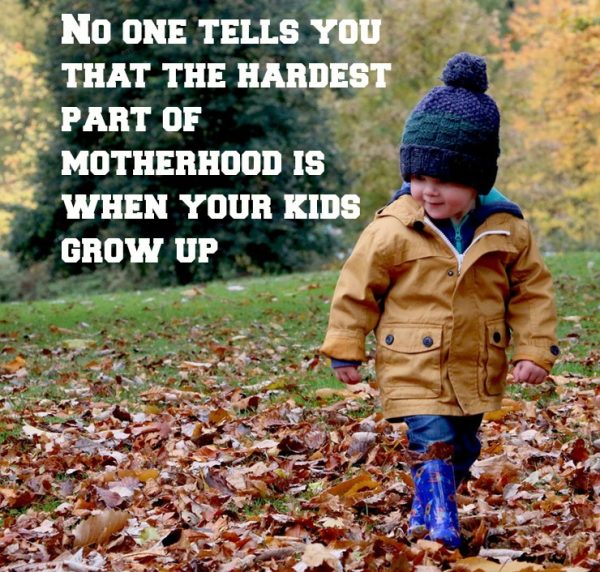Motherhood is a journey filled with joy, love, and countless milestones, but comes with its fair share of challenges. From sleepless nights to endless diaper changes, each stage of motherhood presents its unique set of trials and triumphs.
However, among these stages, one often stands out as particularly daunting. It is that stage when your child becomes a teenager, navigating the tumultuous waters of adolescence.
With hormones raging and a newfound sense of independence, this stage tests your patience, resilience, and ability to adapt. So, what is the most challenging stage of motherhood? Let’s explore the complexities and rewards of raising teenagers together.
Review contents
Infant Stage
Sleep deprivation
Ah, the joy of welcoming your little bundle of joy into the world! The infant stage is a beautiful time but has its fair share of challenges. Sleep deprivation is one of the biggest hurdles that parents face during this stage.
Your newborn needs round-the-clock care, which means waking up multiple times throughout the night for feedings, diaper changes, and soothing. The lack of uninterrupted sleep can leave you feeling exhausted and drained, both physically and mentally. However, rest assured that this stage is temporary, and soon enough, your little one will start to settle into a sleep routine.
Learning to care for a newborn
Caring for a newborn can be an overwhelming experience, especially if you are a first-time parent. There is much to take in, from learning to change diapers and bathe your little one to understanding and comforting their cues.
But don’t worry; the learning curve is steep, and you will become more confident as you gain experience. Surround yourself with trusted resources such as parenting books and online communities, and even seek advice from experienced parents. Remember, every baby is unique, and what works for one may not work for another, so don’t be too hard on yourself – you are doing great!
Postpartum recovery
While caring for your precious little one, you must not forget about your well-being. The postpartum period comes with its own set of physical and emotional challenges. Your body has just gone through the incredible journey of childbirth, and it needs time to heal. Be kind to yourself and allow yourself to rest and recover. Seek support from your partner, family, and friends, and don’t hesitate to contact healthcare professionals if you need guidance or assistance. Remember, caring for yourself is as important as caring for your baby.
Toddler Stage
Constant supervision
Oh, the curious and adventurous toddler stage! As your little one starts to explore the world around them, it becomes necessary to provide constant supervision. Toddlers have a knack for getting into every nook and cranny, and their boundless energy can sometimes lead to accidents or mishaps. It’s essential to create a safe environment for them to explore while keeping a watchful eye. Stay one step ahead by childproofing your home, removing potential hazards, and ensuring your toddler is always in sight. Remember, their safety is your top priority.
Dealing with tantrums
Ah, the infamous toddler tantrums! As your little one develops their opinions and desires, they may express frustration through tantrums. Tantrums can be challenging, mainly in public places or at inconvenient times. It’s essential to remain calm and patient during these outbursts. Try to understand the root cause of the tantrum, whether it be hunger, fatigue, or simply a need for attention. Implementing consistent boundaries and teaching them appropriate ways to express themselves can also help reduce the frequency of tantrums.
Language development
The toddler stage is a critical time for language development. Your little one is like a sponge, absorbing every word and sound they hear. As a parent, you play a crucial role in nurturing their language skills.
Engage in conversations, read books together, and sing songs to expose them to a wide range of vocabulary and language patterns. Encourage their attempts at communication, even if it’s just babbling or using simple words. Remember, language development takes time and patience, so celebrate every milestone.
Preschool Stage
Potty training
Bid farewell to diaper duty as your little one enters the preschool stage! Potty training can be both exciting and challenging for parents and children alike. It’s essential to approach this milestone with patience and positivity. Encourage your child to sit on the potty regularly, offer praise and rewards for successful attempts, and be understanding if accidents happen. Remember, every child is different; some may take longer to master this skill than others. Don’t rush the process; soon enough, your little one will proudly use the big kid toilet.
Boundary testing
As your child grows, their sense of independence and curiosity increases. This newfound freedom sometimes leads to boundary testing. Preschoolers may push the limits to see how far they can go or assert their independence. Establishing clear and consistent boundaries is essential while allowing room for exploration and growth. Communicate your expectations calmly and firmly, and explain the rules and consequences. Encourage positive behavior and praise their efforts, helping them understand the importance of respecting boundaries.
Preparing for formal education
As your preschooler gets closer to starting formal education, it’s essential to lay the groundwork for a successful transition. Introduce age-appropriate activities that encourage social, emotional, and cognitive development. Foster a love for learning by exposing them to books, puzzles, and educational toys. Encourage independent thinking and problem-solving skills. Engage in conversations about school, friendships, and emotions to help prepare them for the exciting adventure of entering the classroom. Remember, every child develops at their own pace, so focus on nurturing their unique strengths and interests.
School Age Stage
Balancing work and school commitments
As your child enters the school-age stage, you might find yourself juggling work and education responsibilities. Finding a balance between the two can be challenging. Set clear boundaries to separate your work and family life, and prioritize quality time with your child. Delegate tasks when possible and seek support from your partner, family, or friends. Please communicate with your child’s school and stay involved in their academic journey. Finding a balance requires trial and error, so be patient with yourself as you navigate this stage.
Helping with homework
Homework becomes a part of your child’s daily routine during the school-age stage, and providing support without taking over is essential. Create a designated homework space free from distractions and establish a consistent schedule. Please encourage your child to take breaks when needed and provide guidance when they feel stuck. Focus on building their problem-solving and critical thinking skills rather than just providing the answers. Remember, homework aims not only to reinforce what they have learned but also to teach them essential skills such as time management and responsibility.
Social and emotional challenges
The school-age stage brings your child a new set of social and emotional challenges. They may experience peer pressure, conflicts with friends, or difficulty managing emotions. Creating a safe and open environment for your child to express their feelings and concerns is essential.
Teach them effective communication and conflict-resolution skills. Encourage empathy and understanding towards others. Foster a sense of resilience and self-confidence by celebrating their strengths and helping them navigate challenges. Remember, your unwavering support and guidance during this stage can make a big difference in their overall well-being.
Tween Stage
Navigating puberty
Ah, the tween stage – the precursor to the teenage years! Significant physical and emotional changes mark this stage as your child starts to navigate puberty. It’s essential to provide accurate and age-appropriate information about the changes their body is going through. Encourage open and honest conversations about puberty, addressing any concerns or questions they may have. Provide resources such as books or online materials to supplement their understanding. Remember, this stage can be confusing and overwhelming for your child, so be patient and provide reassurance.
Peer pressure
As your child enters the tween stage, they will likely encounter peer pressure – the desire to fit in and conform to their social group’s norms and expectations. It’s essential to empower your child to make independent and responsible decisions. Teach them to trust their instincts and stand up for their beliefs, even if it means going against the crowd. Foster open lines of communication so they feel comfortable discussing any peer pressure situations with you. Encourage activities and friendships that align with their values and interests. Remember, your support and guidance can help your child navigate peer pressure while staying true to themselves.
Communication difficulties
Ah, the age-old struggle of communication with your tween! As they start to assert their independence, you may find that open and honest communication becomes a bit more challenging. Creating a safe and non-judgmental space where your child feels comfortable expressing themselves is essential. Practice active listening and show genuine interest in their thoughts and opinions. Use positive reinforcement and constructive feedback to encourage effective communication. Remember, while there may be frustration or misunderstandings, maintaining an open and supportive relationship is critical.
Teenager Stage
Independence and rebellion
Ah, the teenage years – a rollercoaster of emotions and challenges! As your teenager begins to assert their independence, you may find yourself navigating the fine line between allowing them to spread their wings and setting boundaries. It’s essential to strike a balance that promotes independence while ensuring their safety and well-being. Encourage open communication and mutual respect. Offer guidance and support while allowing them to make mistakes and learn from them. Remember, independence is a natural part of their development, and allowing them to explore it can help them grow into confident young adults.
Navigating relationships and dating
As your teenager explores romantic relationships, providing guidance and support is essential. Encourage open conversations about healthy relationships, consent, and boundaries. Teach them the importance of respect, empathy, and communication. Set clear rules and expectations regarding dating and monitor their activities without being overly intrusive. Foster a sense of self-worth and encourage them to make informed relationship decisions. Remember, your role as a parent is to guide and support them as they navigate the complexities of love and dating.
Preparing for adulthood
As your teenager inches closer to adulthood, it’s essential to equip them with the necessary skills to thrive in the real world. Please encourage them to take on responsibilities such as managing their finances, practicing time management, and setting goals for their future. Explore opportunities for part-time jobs, internships, or volunteer work to help them gain valuable experience and build their resumes. Support their educational pursuits and assist them in researching and applying for colleges or career paths. Remember, your guidance during this stage can help set them up for a successful transition into adulthood.
Empty Nest Stage
Feelings of loss and loneliness
As your children leave the nest and embark on their journeys, you may experience various emotions, including loss and loneliness. It’s natural to miss the daily presence of your children and yearn for the time when they were younger. Allow yourself to grieve this change while embracing the new opportunities that come with an empty nest. Lean on your partner, friends, and hobbies to fill the void and create a fulfilling life for yourself. Remember, your love and support for your children continue as they enter adulthood.
Rediscovering personal identity
With your children out of the house, the empty nest stage allows self-reflection and rediscovery. Take this time to pursue your passions, interests, and goals. Explore new hobbies, take up classes, or embark on new adventures. Reconnect with old friends or forge new connections with like-minded individuals. Rediscover who you are outside of the role of a parent. Remember, this stage signifies a new chapter in your life, and embracing it with excitement and curiosity can lead to personal growth and fulfillment.
Adjusting to an empty home
As your children move out, the once-bustling home may suddenly feel empty and quiet. It’s essential to adjust to this new phase of life gradually. Embrace the newfound freedom and flexibility that comes with an empty home. Redefine your living space and make it your own. Use this time to declutter, reorganize, and create a sanctuary that reflects your style and comfort. Stay connected with your children through regular communication and visits, and cherish the moments of togetherness. Remember, while the dynamic may differ, your home can continue to be a place of love and warmth.
Parenting Adult Children
Letting go of control
As your children transition into adulthood, they must let go of the need for control and allow them to make their own decisions and choices. Trust that you have instilled the values, skills, and resilience they need to navigate the world. Offer guidance and advice when requested, but avoid imposing your expectations or opinions. Allow them to learn from their successes and failures. Remember, part of being a parent of adult children is respecting their autonomy and supporting their journey toward independence.
Financial support
The transition to adulthood often comes with financial responsibilities and challenges. As a parent, it’s essential to establish clear boundaries and expectations regarding financial support. Encourage your adult children to take responsibility for their expenses and teach them about budgeting and financial management. Offer guidance and assistance when necessary, but provide them the tools and knowledge to become financially independent. Remember, your support should aim to empower them rather than create dependency.
Maintaining a supportive relationship
As your children grow into adults, the parent-child dynamic evolves into a supportive relationship based on mutual respect and understanding. Recognize the importance of open and honest communication. Be a source of support and encouragement as they navigate their personal and professional lives.
Offer a listening ear without judgment and celebrate their achievements. Maintain boundaries while still fostering a loving and nurturing relationship. Remember, your love and support remain constant as your children transition into adulthood, and your guidance can be a valuable source of strength for them.
Grandparenting Stage
Balancing spoiling and discipline
As a grandparent, you enjoy spoiling your grandchildren, but balancing indulging them and maintaining discipline is essential. Respect the parents’ rules and discipline strategies and avoid undermining their authority. Foster a positive and supportive relationship with your grandchildren while instilling values and teaching important life lessons. Use your experience and wisdom to guide them, offering gentle guidance when needed. Remember, you have a unique and special role in your grandchildren’s lives, and finding a balance between spoiling and discipline can help create a harmonious family dynamic.
Maintaining boundaries with adult children
As a grandparent, it’s essential to respect the boundaries established by your adult children when it comes to your role in their children’s lives. Discuss expectations and limitations openly and honestly, ensuring your involvement aligns with their parenting choices. Offer support and assistance when desired, but also give them space to establish their parenting styles. Remember, being a grandparent means embracing the joys and responsibilities that come with it while always respecting the boundaries set by your adult children.
Providing emotional support
As a grandparent, you have the unique opportunity to provide emotional support to your grandchildren. Be a source of unconditional love, understanding, and comfort for them. Celebrate their achievements, listen to their concerns, and offer guidance when needed. Create special bonds through quality time together, sharing stories, and imparting wisdom. Your presence in their lives can be a source of stability and love during everyday moments and challenging times. Remember, emotional support can profoundly impact your grandchildren’s well-being and development.
Caring for Aging Parents
Dealing with health issues and decline
As your parents age, you may find yourself taking on the role of a caregiver. Dealing with health issues and decline can be emotionally and physically demanding. It’s essential to prioritize your well-being while caring for your aging parents. Seek support from healthcare professionals, support groups, and family members. Establish a routine that includes regular medical check-ups, medication management, and addressing their specific needs. Communicate openly with your parents about their preferences for care and involve them in decision-making as much as possible. Remember, seeking help and support is crucial during this stage.
Making difficult decisions
Caring for aging parents often involves making difficult decisions regarding their well-being and quality of life. It’s essential to approach these decisions with compassion, respect, and open communication. Involve your parents in discussions and take their wishes and preferences into account.
Seek advice from healthcare professionals, geriatric care managers, or legal experts if necessary. Consult with your siblings or other family members to ensure a collaborative approach. Making difficult decisions may be emotionally taxing, but prioritizing your parents’ best interests and maintaining their dignity is paramount.
Providing emotional and physical care
Caring for aging parents goes beyond their physical needs – it also involves emotional support and companionship. Be a listening ear and offer comfort during moments of uncertainty or anxiety. Spend quality time together, engaging in activities they enjoy or simply sharing stories and reminiscing. Ensure their living environment is safe, comfortable, and conducive to their needs.
Explore options such as in-home care, assisted living facilities, or nursing homes to ensure they have the required support. Remember, your role as a caregiver extends beyond providing physical care – your emotional presence can make a significant difference in their overall well-being.



































